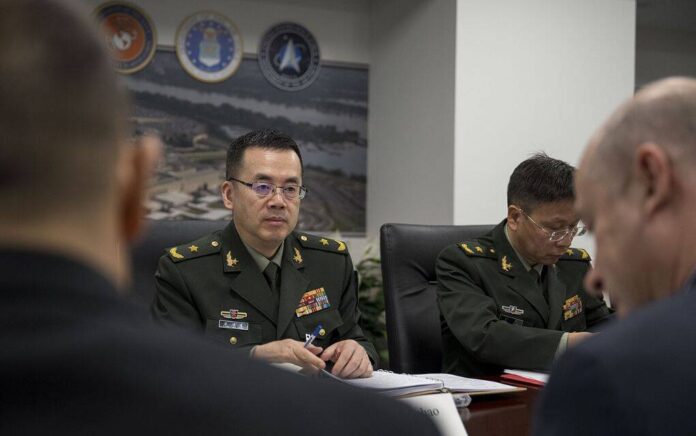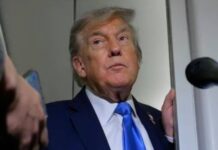
The communist government in China has gotten away with a lot. But that’s not going to happen anymore.
Because President Trump drew a line in the sand that he’s daring China to cross.
Trump Bolsters Taiwan’s Defenses with $330M Arms Package
In a firm display of American resolve under President Donald Trump’s commanding second term, the United States greenlit a $330 million arms sale to Taiwan on Thursday, delivering critical spare parts and repairs for the island’s F-16 fighters, C-130 transports, and other key aircraft.
This move—the first major weapons transfer since Trump’s January inauguration—signals unwavering U.S. support for Taiwan’s security as Chinese aggression ramps up, blending symbolic muscle with practical firepower.
The Pentagon hailed the package as essential for keeping Taiwan’s air forces sharp and ready to tackle “current and future threats,” particularly China’s relentless “gray-zone” provocations like near-daily jet incursions that strain the island’s defenses.
Implementation is slated to kick off within weeks, per Taiwan’s Ministry of National Defense, which lauded the steady flow of U.S. aid as a bedrock for Indo-Pacific stability. Taipei’s leadership echoed the sentiment, framing the partnership as a bulwark against Beijing’s saber-rattling.
Beijing’s Backlash Meets U.S. Steadfastness
China’s response was predictably volcanic, with the Foreign Ministry slamming the deal as a blatant breach of the one-China policy and the trio of U.S.-China joint communiqués that underpin ties.
Beijing, which views Taiwan as a breakaway province ripe for reunification by force if needed, decried the sale as meddling in its “internal affairs” and a direct assault on sovereignty. In retaliation, expect fresh sanctions on U.S. defense heavyweights like Lockheed Martin and Northrop Grumman—tactics the Communist regime has wielded in recent years to freeze assets and bar executives.
Yet Trump’s administration, true to its America First ethos, stands undeterred, honoring the 1979 Taiwan Relations Act’s mandate to arm the island defensively while keeping unofficial channels open.
This isn’t flashy escalation but smart continuity: equipping Taiwan to stand tall without blinking first against coercion. As White House sources note, it’s all about deterrence—ensuring Beijing thinks twice before testing U.S. red lines in the region.
Clearing Backlogs, Fueling Future Firepower
This approval slots neatly into Trump’s proactive defense playbook, building on $75 million in upgrades last February and a $385 million boost in November 2024 that sharpened Taiwan’s radars, comms, and jets.
Together, they’re chipping away at a whopping $21 billion delivery logjam that’s hampered Taipei’s modernization for years.
Hot on the heels of the 24th U.S.-Taiwan Defense Industry Forum in Maryland—where insiders buzzed about 2026 sales hitting all-time highs once Taiwan’s beefed-up budget clears 3% of GDP—the deal underscores a recalibrated Indo-Pacific strategy.
For Trump, it’s a win-win: fortifying a vital ally, projecting strength to adversaries, and keeping American industry humming. As tensions simmer, this arms infusion isn’t just parts—it’s a promise that freedom’s guardians won’t go it alone.



















